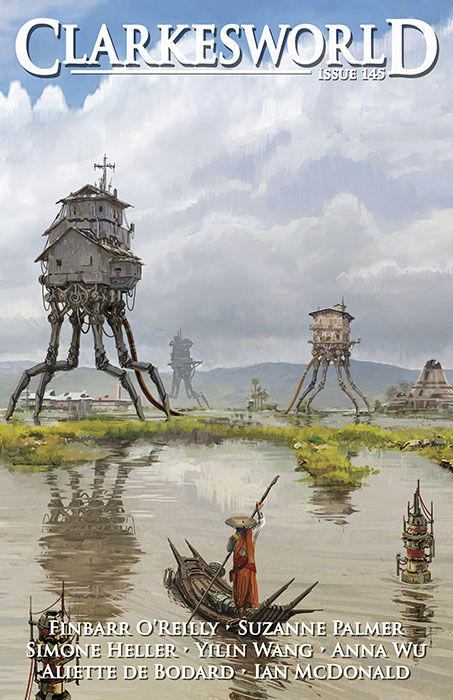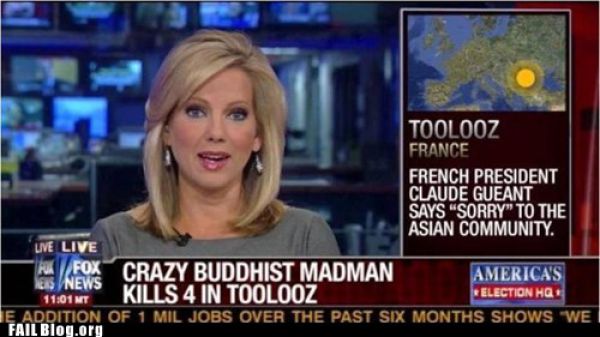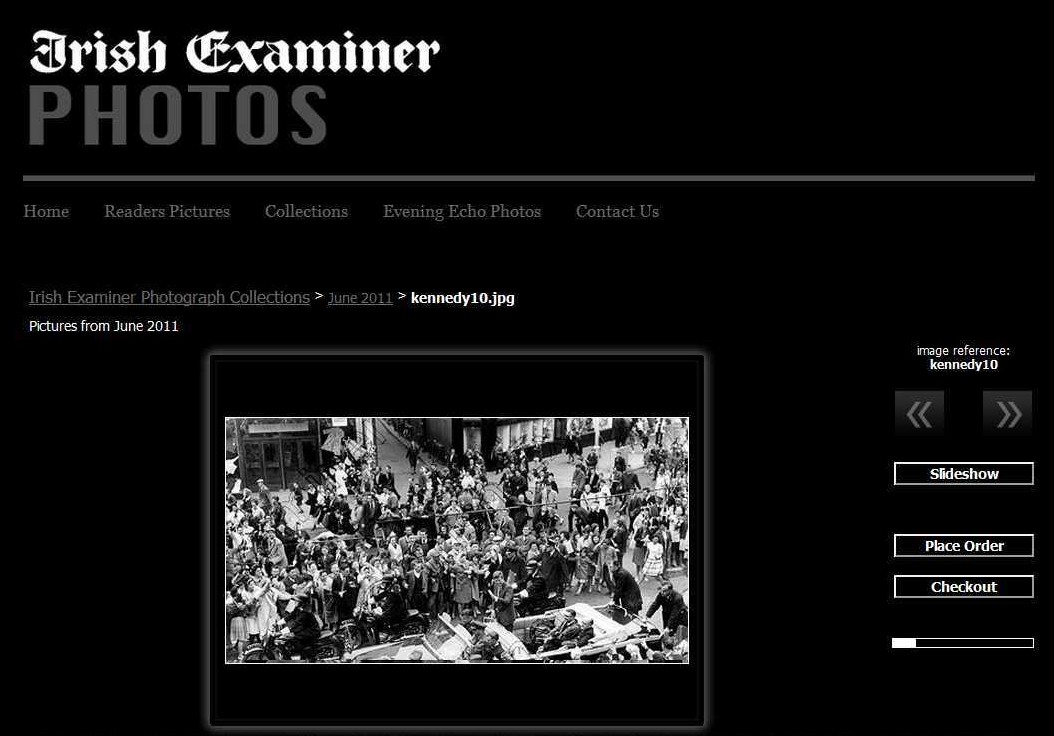Once upon a time, people paid to have their businesses listed in the Golden Pages. Once upon a time, it was against the law to give somebody information about where to get a perfectly legal abortion in a foreign country. One day, I will have to tell my incredulous children these stories about things made irrelevant by the internet. Yesterday, I was given a third.
Once upon a time, newspapers used to sue people for sending them an audience.
Apparently, “there is a fight under way that will have an enormous bearing on the future of the news industry in Ireland”.
Gather ye round kids, and I will tell you of Y2K, SARS, Blur-vs-Oasis, Pippa Middleton’s bum and many other tales that were blown out of all proportion by Irish newspapers.
At the centre of the supposed row (really just a conference organised by the National Newspapers of Ireland) is a review into Irish copyright law and the doctrine of “fair use”. Leaders in at least two of the Irish newspapers, the Independent and the Examiner, maintain that search engines “steal” their content without paying a penny in return.
The Irish Independent yesterday wrote:
“Website giants are taking journalism at no cost and offering it for free — even though it is costing jobs and livelihoods in the trusted media sector.”
The Irish Examiner wrote:
“The scale of the piracy is astounding. In 2010, while every media company in the country shed jobs and cut costs to the bone, a single search engine operating in Ireland offered around 150,000 newspaper articles that cost publishers an estimated €46.5m to generate. Last year that site offered more than 350,000 articles at a cost equivalent to more than €110m. And all without paying one cent to those who created those articles.”
We know (because it was in The Irish Times) that the “website giant” and “single search engine” mentioned is Google, no stranger to such accusations — Rupert Murdoch once referred to them as a “piracy leader”. But at least he had the courage of his convictions and stopped the search engine from indexing The Times when it went behind a paywall (it has resumed listing since then. I wonder why?).
It is that point more than any other that shows up the ludicrous hypocrisy of newspapers complaining about search engines “stealing” their content.
Newspapers have thrown up the shop shutters, spread out their wares and asked Google to please tell people about them. Or, as the Examiner puts it, a “process … hardly different to what we more commonly describe as theft”.
So why don’t they just ask Google to stop? Every newspaper website contains a file called robots.txt which tells Google what it may or may not index. If the executives at the Indo and Examiner want Google to stop listing everything on their websites, they just have to push a button. Or at least ring the editor, tell him to ring the head of IT, and he will ask Jim, “on the website”, to push the button.
But, of course, they will not. If they shut Google out, their online advertising revenues, already small, will fall. This is not a moral argument, with newspapers telling search engines to do the right thing and pay their way. This is newspapers demanding a renegotiation, saying “please sir may I have some more”.
Irish newspapers are in trouble. Circulations are falling, ad revenues are falling, and digital revenues come nowhere near to making up the difference. And the managements of Irish newspapers do not know what to do.
If you question that, take another look at those numbers:
“Irish industry group the National Newspapers of Ireland (NNI), of which The Irish Times is a member, said Google had offered 150,000 newspaper articles in 2010 that had cost publishers around €46.5 million to produce. Last year, this increased to more than 350,000 articles that cost the industry €110 million to originate.”
At a time when publishing has never been more widespread, easier or cheaper, these guys think lax copyright is the problem, not that each article costs them an average €314 to produce?
Let us completely ignore the fact that newspapers regularly “copy and paste” material from other sources, both public domain and not-so-public domain, and pass it off as their own, original, copyrightable work. Let us not hold our breath when we ask: do they always pay freelance newspaper contributors to reprint their copyrighted work online?
€314 per article? I don’t know what shift rates are like in Ireland these days but I’m guessing they’re less than that and I’m guessing most papers expect more than a story per day.
If this were any other industry, it is journalists who would be asking the sensible questions:
- Doesn’t Irish copyright law already make selling somebody else’s original work as your own illegal? (Yes, for a given value of original.)
- Would this be difficult and costly to enforce? (Yes, incredibly so.)
- Will it stop people reading “free” news online? (Of course not.)
- Will print publications be subject to the same rules? Digests in The Week and The Economist both carry more text than a Google link. Will they have to pay?
Newspapers are not dying because people online can read their stories without paying them. Newspapers are dying because the property and recruitment booms ended, because classified ads moved online, because they were poorly managed (aimless regional expansion, propping up vanity titles in London, €50 million for myhome.ie, anyone?) and just because technology passed them by for almost 20 years.
You are not going to solve a 21st-century technological problem by strengthening a law introduced to regulate 18th-century printing presses.
The Examiner says “Newspapers do not want or expect special treatment”, but that is not how it looks. Earlier this year, Alan Crosbie, the chairman of Thomas Crosbie Media, which owns the Examiner, essentially pleaded for a portion of the TV licence fee that funds RTÉ.
John Lloyd, a contributing editor to the FT, said the speech was driven by “the passion of desperation”. Given the parlous state of TCH finances reported in The Phoenix last month, it is unlikely that desperation has gone anywhere.
Paywalls are often suggested as a cure for newspapers’ revenue woes. I’ve written here before about why I think they’re not, but the main reason is that there will always be other sources of news. Such as the BBC and, in Ireland, RTÉ. They are not going anywhere as news-gathering organisations, despite the wishful thinking of the NNI, and as long as they’re around, Google will have news content to link to.
Google will not pay you for the privilege of linking to your content. The notion is akin to Borris-in-Ossory demanding payment from anyone who gives directions to a motorist, because it cannot extract enough money from them when they arrive. Google will just stop indexing your websites and traffic will dry up.
It is hard to think of a more misguided, and pointless “row” to be having in the face of the difficulties Irish papers are enduring than over whether copyright is strong enough. In 20 years’ time my kids will be asking what it was.
“Boss, circulation’s down, ad revenues are down, the kids are all reading for free online. What do we do?”
“Somebody get me a Golden Pages. We need a copyright lawyer.”

 However, in another, just as contradictorily real way, I am sad it’s over. It was only on the fourth day that I really hit my stride, culling every other panel I wanted to see (back-to-back attendance is nigh-on impossible even when the panels are in the same venue), getting over the shyness enough to greet people I “know” from Twitter in real life and remembering to eat enough, drink enough water and, when things get a bit much, just to get outside in the sporadic sunny spells that rolled over the CCD’s glass barrel.
However, in another, just as contradictorily real way, I am sad it’s over. It was only on the fourth day that I really hit my stride, culling every other panel I wanted to see (back-to-back attendance is nigh-on impossible even when the panels are in the same venue), getting over the shyness enough to greet people I “know” from Twitter in real life and remembering to eat enough, drink enough water and, when things get a bit much, just to get outside in the sporadic sunny spells that rolled over the CCD’s glass barrel.
 I’m delighted that such an Irish story will get an outing at the first Irish Worldcon (second one in Cork in 2026, anyone?) and I’m very grateful to Neil Clarke at
I’m delighted that such an Irish story will get an outing at the first Irish Worldcon (second one in Cork in 2026, anyone?) and I’m very grateful to Neil Clarke at 

